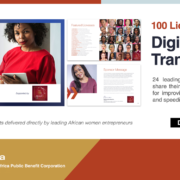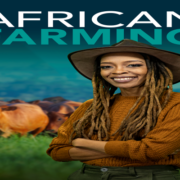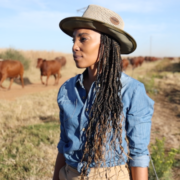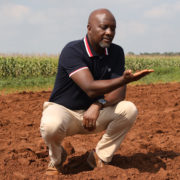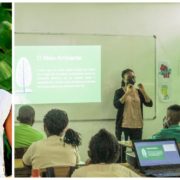Amena is an adventurous executive with an artist’s heart; she was awarded as a woman champion of change in Egypt 2020 by the joint partnership between Canada and Sweden embassies and was certified by the Japanese International Cooperation Agency (JICA) in “Improvement of Accessibility of Social Inclusion – Barrier Free Environment” in Japan, 2016. She was also awarded the Total Start-Upper of the Year for Helm Consulting in 2016. Today, under Amena’s leadership, Helm stands at the forefront of the disability field, and employs 22 people.
What does your company do?
Helm promotes the full inclusion of persons with disabilities in all aspects of life by removing environmental, technological, and social barriers through comprehensive inclusion services for businesses, professionals, and governments. Helm is the first provider in the region of localized and customized inclusion solutions, awarded multiple times as innovative global best practices and successful business models by Zero project, JICA, Rise Egypt…etc. Helm supports 2,700 persons with disabilities, serving more than 200 entities and acquiring top notch experts from 16 countries.
Our vision is to promote the full participation of persons with disabilities in all aspects of life while creating value to our customers, our people, and our investors. Our mission is to foster societies where persons with disabilities and businesses grow together, empowering all and transcending barriers.
What inspired you to start your company?
About 10 years ago, two friends and two incidents brought them together to make a decision to turn their lives around, as well as a million others’ lives upside down. An ambitious college student on a trip to Germany attended a museum for the visually impaired named “Dialogue in the dark”. After spending an hour blind there, she was shocked at how ignorant she was of the abilities of persons with disabilities. She decided to do something about it back home.
In parallel, another college student sitting in his marketing class was attentive to his fellow colleagues’ presentations. “What is happening now in the classroom?” whispers a colleague to Ramez; he turns his head to respond to his visually impaired colleague. Right then and there, he decided to adapt his own presentation to include audio description for his video project to ensure his friend is included in the classroom. From forgotten to included. Together they decided to start “Helm” working towards the full inclusion of persons with disabilities in all aspects of life.
Why should anyone use your service or product?
Our services support companies to comply with local disability laws regarding disability hiring quotas as well as complying with the Disability Inclusion policy in companies. Helm provides affordable, high quality services and is the sole provider in the region with the top global experts that are customized to the specific needs of each company.
Tell us a little about your team
The qualified team at Helm focuses on maintaining the highest ethical and professional standards and codes of conduct, building and sustaining trusted long-term relationships. Helm is fortunate to have a talented team that is both inclusive and dynamic.
Share a little about your entrepreneurial journey. And do you come from an entrepreneurial background?
Both myself and Ramez Maher are the co-founders of Helm. Quitting our jobs to be dedicated to Helm full time at the age of 24 to start Helm, was a huge leap of faith. We faced many challenges, whether financial, lack of experience and limitation of resources. This led us to reach out and apply to both local and international accelerator programs, bootstrap and learn to be resourceful in order to kickstart our dream and journey. It also brought about the urge to build a more inclusive world that leaves no one behind and proves it’s not just a good deed but also good for businesses.
We see the entrepreneurship environment in Egypt as highly promising especially for our industry, and there is so much political focus on persons with disabilities and youth development and support. This increased focus is highlighted through public funds, global events such as the World Youth Forum, that brings the youth of the world to Egypt and Helm has been the official accessibility partner for three years in a row right before COVID-19.
There is increased attention from Ministers and governmental officials pertaining to serious ideas and issues. Even though we had no personal connections with Ministers, when the impact of our work started to show promise, we had both the Minister of Social Solidarity and the Minister of Communication and Information Technology support us to give awards to the first 30 companies that made their workplaces and marketplaces more accessible. Egypt has several entrepreneurial events and conferences targeting companies, such as Rise Up for example, which has been described as one of the largest gatherings of entrepreneurs in the region.
What are your future plans and aspirations for your company?
Helm has won numerous awards and competitions making all our efforts and tiring nights worth every second and with all that Helm has achieved, I believe that this is only the beginning. In five years, we strive for Helm to be identified as the HUB for disability services and inclusion in the region and beyond. Helm is building an online platform for its Business Network, an Online Career Portal for persons with disabilities, and will upgrade Helm’s platform to connect the Helm community.
We hope to build partnerships and connections in the countries in the MENA region and the Arab world where we are intending to expand. We also want to learn from best practices and how to create an impact transfer model for our own organization that fits us best.
Our strategy to expand and grow our impact is through targeting more than 64 million people with disabilities in the Arab region as well as thousands of companies who seek to have effective recruitment and retention strategies for people with disabilities and so we’re going to do that through having on the ground support from DPOs, NGOs and subject matter experts who already have access to persons with disabilities and the market in Egypt and the other targeted countries. That will enable us to grow faster as well as develop better strategies to tackle the issues that each country faces.
We will also use new technologies and platforms to tackle the issue of Covid-19 because it had a tremendous impact that hit us all and we intend to go beyond the Covid-19 situation by developing solutions that enable us through technology and online platforms to do so effectively and to be cost efficient as well.
What gives you the most satisfaction being an entrepreneur?
Striving to make this world a more inclusive place; fuelled by the belief that understanding and embracing differences leads to a better life. “The greater the struggle, the more glorious the triumph.” said Nick Vuijicic, an Australian-American born without arms or legs who has become a world-renowned speaker, New York Times best-selling author and an emblem of real determination.
Building a start-up especially in a developing country, makes it inevitable for entrepreneurs, especially female entrepreneurs to face endless struggles. Nevertheless, the satisfaction that one gets once you take one step closer to reach your goals, constant demand for innovation to find ways to overcome them, gives me great satisfaction.
It is at times of constant struggle that one is truly challenged as an entrepreneur to feel satisfied and motivated to power through. Here is when the greatest source of satisfaction comes in; impact. The struggle is a reminder of the kind of choices that we take as entrepreneurs to bring innovation to this world. At these times, I feel blessed to have been given the chance to contribute to bring new solutions to this world that makes people I am directly and people i may never meet have a better life.
It is not only the impact that I make in my own organization, but rather the ripple effect that cannot be measured in influencing others to take risks, to make decisions, to see opportunity, to follow and build on the impact that we have already done.
What’s the biggest piece of advice you can give to other women looking to start-up?
Surround yourself with people who believe in you and your dreams; stay away from the ones who doubt your capabilities. Remember that there are a lot of challenges that you pass through that most people will not understand as a female entrepreneur; especially when you start getting busy chasing that dream of yours. They will try to “protect you” from that risk – that is when you need to remember that doing something that no one else did, requires you to do what most people are not willing to do.
Most people do not know that the body reacts to fear and excitement exactly the same way so always turn your fears to excitement. Remember to always be comfortable by being uncomfortable in order to continue growing. If you are comfortable, it means you stopped learning.
A lot of entrepreneurs think money is the problem. Money is never the problem. Focus on building a great team that is driven by passion and strive to learn; remember that they come first because they are the engine and they always need to be fueled. People invest their time and money in people, not just a good idea- everybody has ideas of great businesses or impact they want to do. Your passion, your determination, your will power to overcome constant obstacles is what will be the magnet that will attract people to join you on your journey to build and innovate to make this world a better place.
Fortify your mission with leaders and experts- “Stand on the shoulders of giants”; you will not believe how many people out there want to help and are just waiting for you to ask for it! Always listen to people who have taken action, who have experience in doing rather than only theory. It is people who have done real work on the ground, even if in a different industry, who will be able to give you advice you can really use. Above all, each start-up is different because you boot-strap with what you have got! So, keep your eyes open to opportunity, yet always learn when to say “no” – because that is the hard part. Do not worry, you will get the hang of it.
To find out more about the work of Helm, contact Amena via email: amena@helmegypt.org or visit the Helm website and social media platforms:
WEBSITE | FACEBOOK | TWITTER | INSTAGRAM | YOUTUBE


